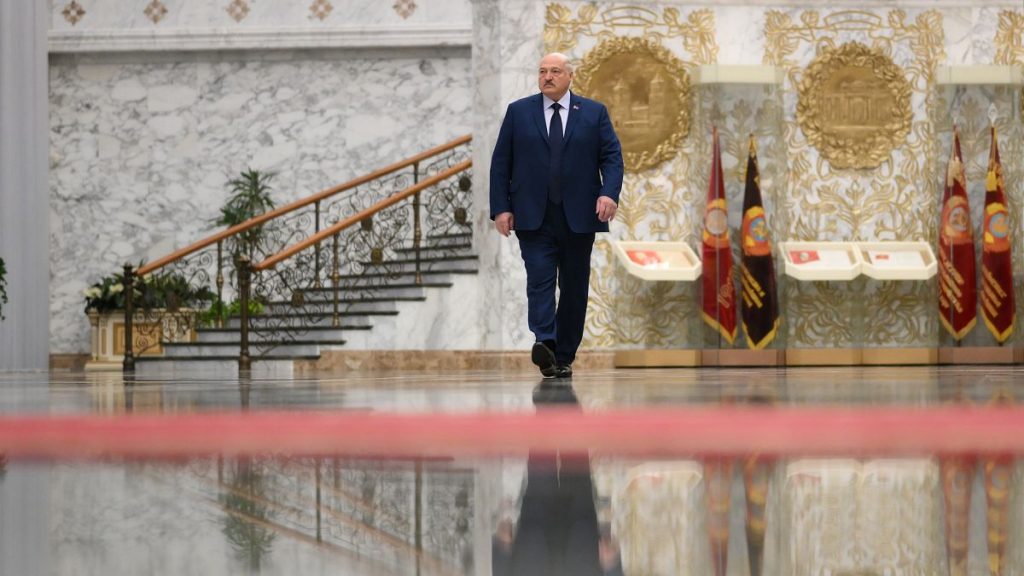Paragraph 1: The Latest Pardon and its Context
Belarusian President Alexander Lukashenko has pardoned 20 individuals labeled as political prisoners by human rights organizations. This announcement, made via a statement on the presidential website, comes amidst a climate of political repression as Belarus approaches presidential elections in January 2025. These elections are widely anticipated to further solidify Lukashenko’s decades-long grip on power, marking his potential seventh term. While Belarusian officials refrained from disclosing the identities of those pardoned, the statement indicated that all had been convicted of "crimes of an extremist nature," a common charge levied against political dissidents. The pardoned group reportedly comprises 11 women and 14 individuals with chronic illnesses. The statement echoed previous pardons, emphasizing the released individuals’ repentance and appeals for clemency to Lukashenko.
Paragraph 2: A Pattern of Pardons Amidst Ongoing Repression
This latest pardon constitutes the eighth instance of such releases by Lukashenko since the summer of 2024, bringing the total number of freed political prisoners to 207, according to Viasna, Belarus’s oldest human rights organization. The majority of these prisoners were incarcerated following the widespread anti-government protests that erupted in 2020 after a disputed presidential election. Lukashenko’s victory in that election, his sixth term, was widely denounced as fraudulent, sparking mass demonstrations and subsequent crackdowns by the government. An estimated 65,000 individuals were arrested during the protests, and Viasna estimates that over 1,250 remain imprisoned.
Paragraph 3: Notable Absences and a Calculated Strategy
Conspicuously absent from the list of pardoned individuals are prominent opposition figures, many of whom have been held incommunicado for extended periods. Among these are Ales Bialatski, Nobel Peace Prize laureate and founder of Viasna; Siarhei Tsikhanouski, a potential challenger to Lukashenko in the 2020 election who was imprisoned prior to the vote; and Viktar Babaryka, another individual whose popularity posed a threat to Lukashenko and who was subsequently incarcerated. The timing and nature of these pardons suggest a calculated political strategy by Lukashenko. Human rights activists argue that the pardons serve as a superficial gesture aimed at appeasing international critics while the government simultaneously continues its repressive tactics against dissent.
Paragraph 4: Repression Escalates Ahead of Elections
Viasna activist Pavel Sapelka contends that the pardons coincide with a renewed wave of repression as Lukashenko prepares for the upcoming presidential elections. This intensification of repression is evident in the restrictive measures imposed on potential candidates. In November 2024, the election commission only permitted seven candidates loyal to Lukashenko to begin collecting the necessary signatures to challenge him in the January 2025 elections, effectively barring any genuine opposition. Sapelka interprets Lukashenko’s actions as sending mixed signals, releasing some prisoners while simultaneously imprisoning others. This tactic, he argues, is designed to create a façade of leniency while maintaining a firm grip on power and stifling dissent before the elections.
Paragraph 5: Harsher Conditions and Prisoner Deaths
The conditions faced by political prisoners in Belarus are notoriously harsh. They are often denied access to legal counsel and family members, and routinely deprived of adequate medical care. Viasna reports that at least seven political prisoners have died in custody since 2020, highlighting the dire consequences of the government’s repressive policies. These conditions underscore the severity of the human rights situation in Belarus and the vulnerability of those who dare to challenge Lukashenko’s authority. The lack of transparency surrounding the treatment of political prisoners further fuels concerns about their well-being and safety.
Paragraph 6: Lukashenko’s Alliance with Putin and International Implications
Alexander Lukashenko, who has ruled Belarus for over three decades, maintains a close alliance with Russian President Vladimir Putin. This alliance has significant geopolitical implications, particularly in the context of the ongoing war in Ukraine. Lukashenko allowed Russian forces to use Belarusian territory as a staging ground for their invasion of Ukraine in February 2022, and subsequently permitted the deployment of Russian tactical nuclear weapons within Belarus. This close cooperation with Russia further isolates Belarus internationally and reinforces Lukashenko’s reliance on Putin’s support to maintain his hold on power. The pardons, viewed against this backdrop, appear to be a minor concession within a larger strategy of consolidating power and aligning with Russia’s interests.














